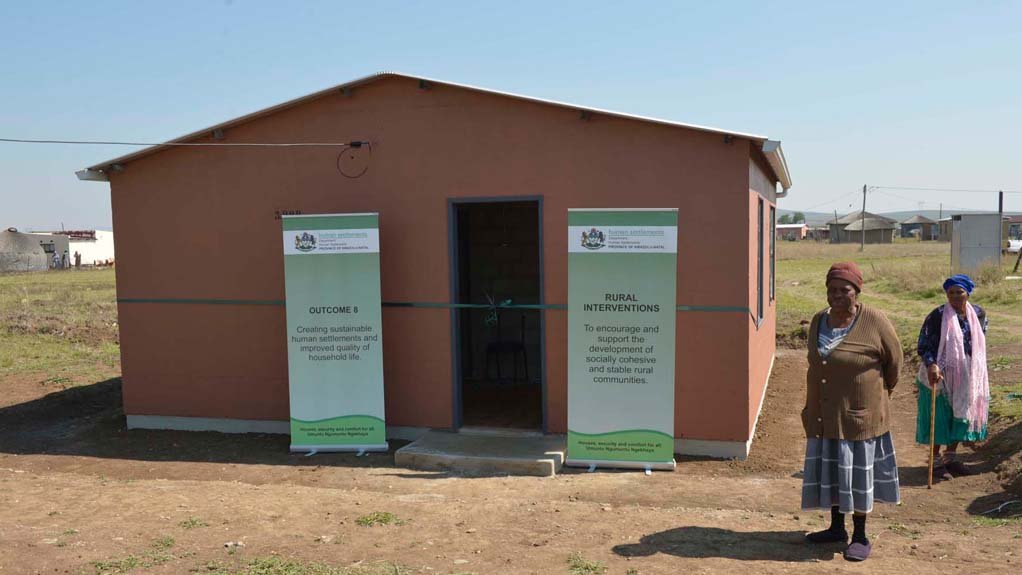“As long as poverty, injustice and gross inequality persist in our world, none of us can truly rest.” – Nelson Mandela
Service delivery protests
Five hundred and twenty service delivery protests have been recorded in KwaZulu-Natal in 2017 and eighty per cent of these unrests occurred in urban centres with eThekwini Municipality enjoying the lion’s share. The question that comes to mind is: why these service delivery protests are mainly targeting eThekwini Municipality? There is an array of reasons advanced as to why these occurrences are escalating and concentrated in poor areas.
I am inclined to correlate geographical inequality with the growing disquiet of poor communities located in the Greater Durban Metropolitan Area. I am aware that correlation does not imply causality.
EThekwini Municipality is roughly 2 997 square kilometres, has a population of approximately 3.5m and is ranked third in country by population. There are 956 713 households of which 40% are headed by women. Black Africans are 74% of the population. The unemployment rate is 30.2%, youth unemployment is 39%, and poverty related conditions affect 41.8% of the population.
Only 12% of the population has attained a high school education. The effects of climate change are already felt in EThekwini Metropolitan Area as evidenced by extreme weather patterns and sea level rise.
Apartheid spatial planning is the bedrock of most of the inequalities that are prevalent today. The question of where you live greatly determines what type and level of quality of services you can access (e.g., healthcare, education, infrastructure or sanitation). Apartheid development was based on racial lines. White areas were developed and black areas were grossly under-developed resulting in apartheid – sponsored convergence of race and class.
Uneven development
The politicisation of space became the cornerstone of social inequality. Thabo Mbeki, the former president of South Africa, remarked in 1998 parliamentary debate that we are, “Two nations separated by poverty, one white and one Black.” I am of the view that Durban is a city with two separate and unequal societies based on spatial inequalities. This is what development theorists refer to as uneven development.
Other people will argue that I cannot blame apartheid for these problems twenty-four years into the new dispensation. My response to that debate is that most deprivation in terms of basic services is based on spatial inequality. This situation goes against the ideals of the former president of the ANC, Cde OR Tambo of working towards a “South Africa wherein black and white shall live and work together as equals”. A classic example of spatial inequality will be the comparative analysis of two localities adjacent to each other: Hillcrest and Embo. These precincts are located west of Durban, the former is a suburb and has running water and the latter has no sanitation infrastructure and is deep rural. These communities are five metres apart and a street separates them. Children growing up in Embo are adversely affected as there is strong evidence pointing to location as a determinant in accessing opportunities connected to infrastructure.
The infrastructure development landscape paints a bleak picture with only 63.4% of households with toilets linked to sewerage and 60.2% with piped water inside the structure. The basic services backlog articulated in the IDP 2016/2017 attests to the inability of EThekwini Municipality to address the inequalities of the apartheid regime. The backlog is sitting at 158 837 for sanitation, water at 59 192, electricity at 258 449 and the road infrastructure backlog is 1 079.36 kilometres. It is not by accident that water; sewer and electricity accumulations are converged in historically black areas.
The net effect of spatial inequality is that it has concentrated poverty into predominantly black areas resulting in health related risks, poor service delivery, criminality and lack of access to economic opportunities. Ben Turok, a respected politician and scholar, refers to these developments as “poverty and inequality traps”. This nexus between access to opportunities and spatial inequality is also recorded in the World Bank Report (2012) where it recognises that children growing up in poor areas and rural villages are at a clear disadvantage.
According to the IDP 2016/2017, EThekwini has documented 43 739 new and old TB cases translating to 916 cases per 100 000 population in 2014 – earning the City of Durban a position among the worst TB infected district in the country. The above affects mostly deprived wards where the poor black communities live. The Deprivation Index supports the above assertion as it states that most deprived wards are in predominantly black precincts such as eMalukazi, south of Durban, and the well-off wards are in historical white areas such as Umhlanga, north of Durban (Source: IDP, 2016/2017). The lack of well-resourced healthcare facilities and access to health related information in these wards exacerbate the situation and perpetuate tuberculosis.
Written by Sombiza Gxabhashe
Independent Social Facilitator in Durban and KwaZulu-Natal Province
EMAIL THIS ARTICLE SAVE THIS ARTICLE ARTICLE ENQUIRY
To subscribe email subscriptions@creamermedia.co.za or click here
To advertise email advertising@creamermedia.co.za or click here











